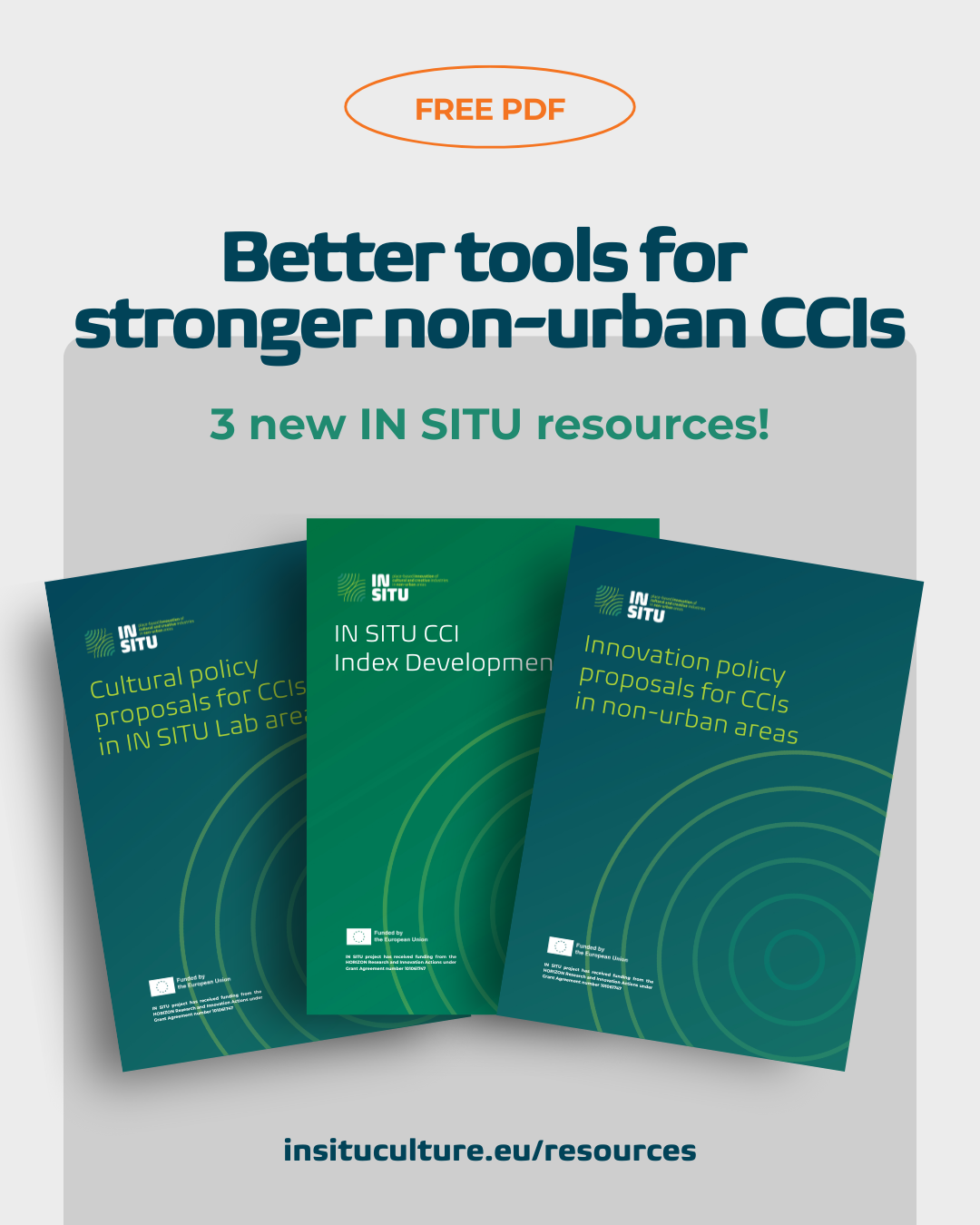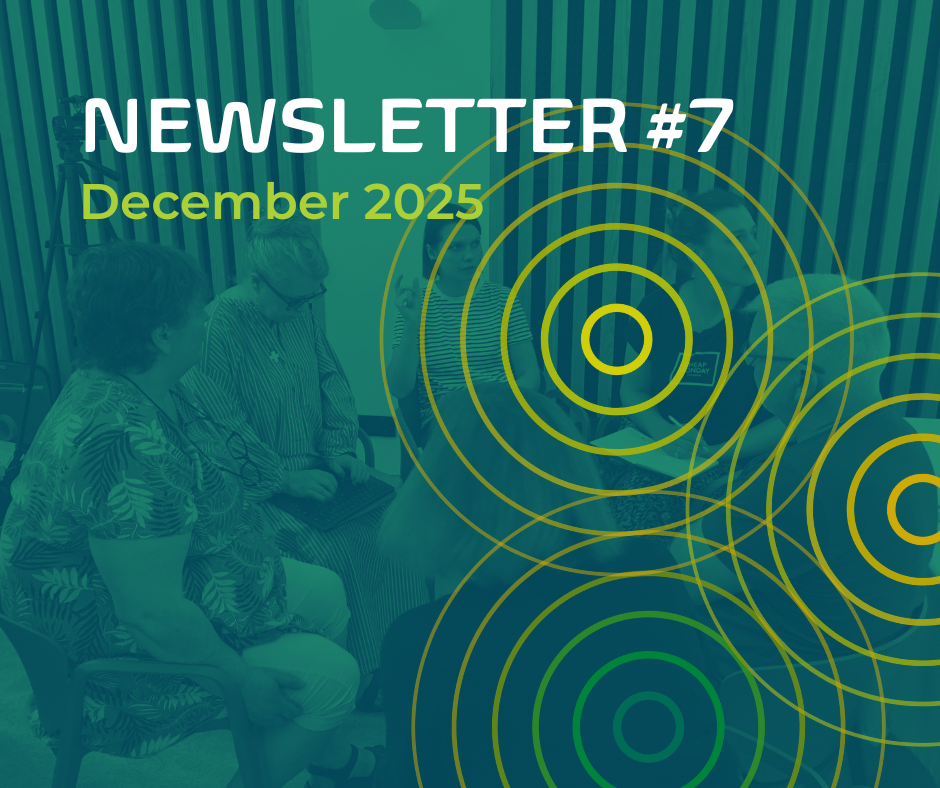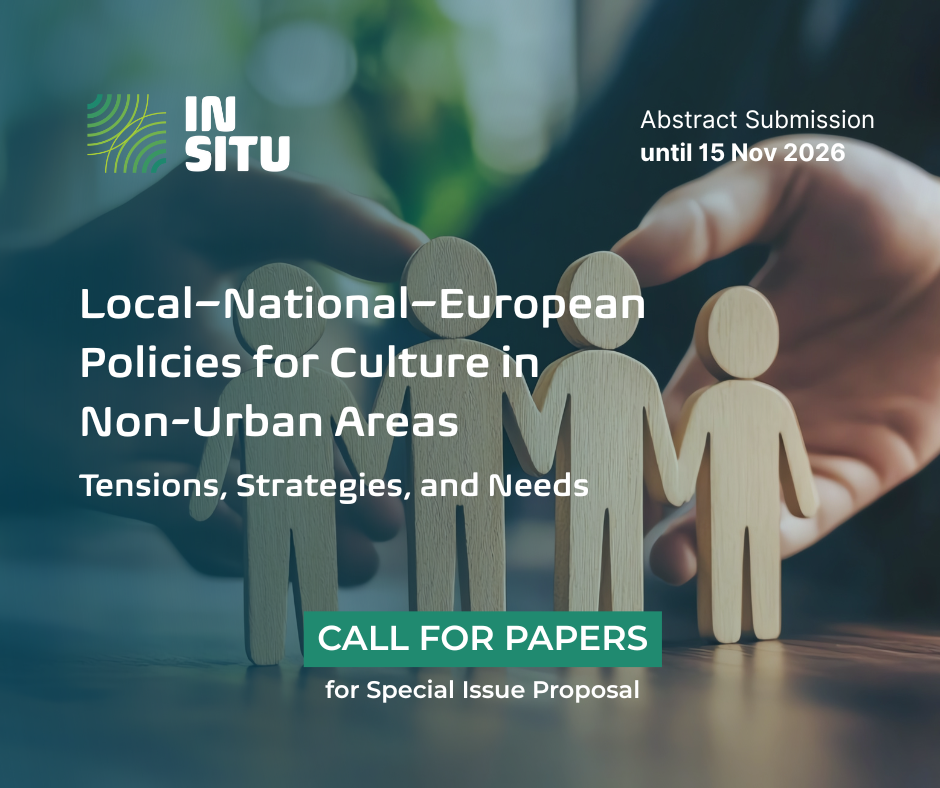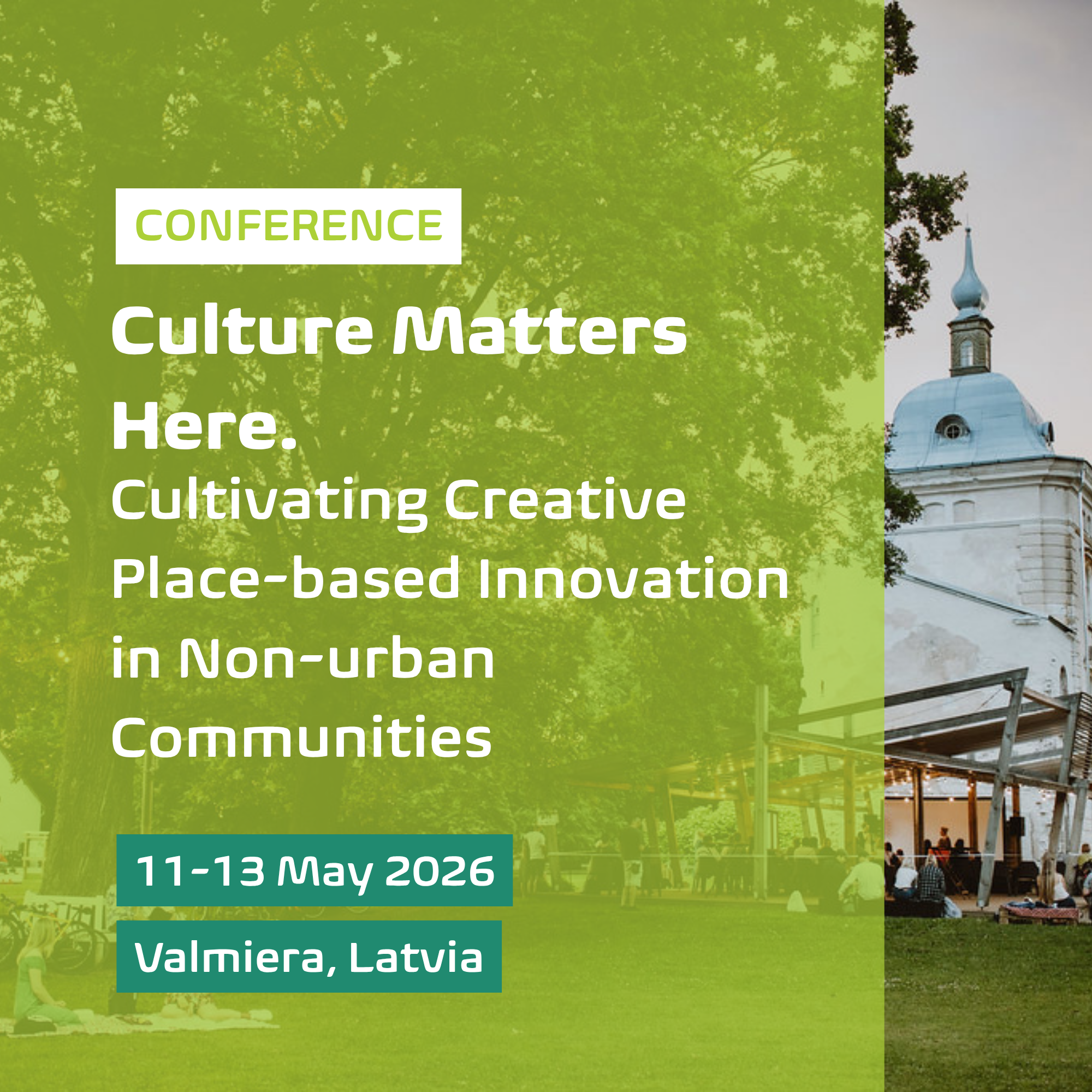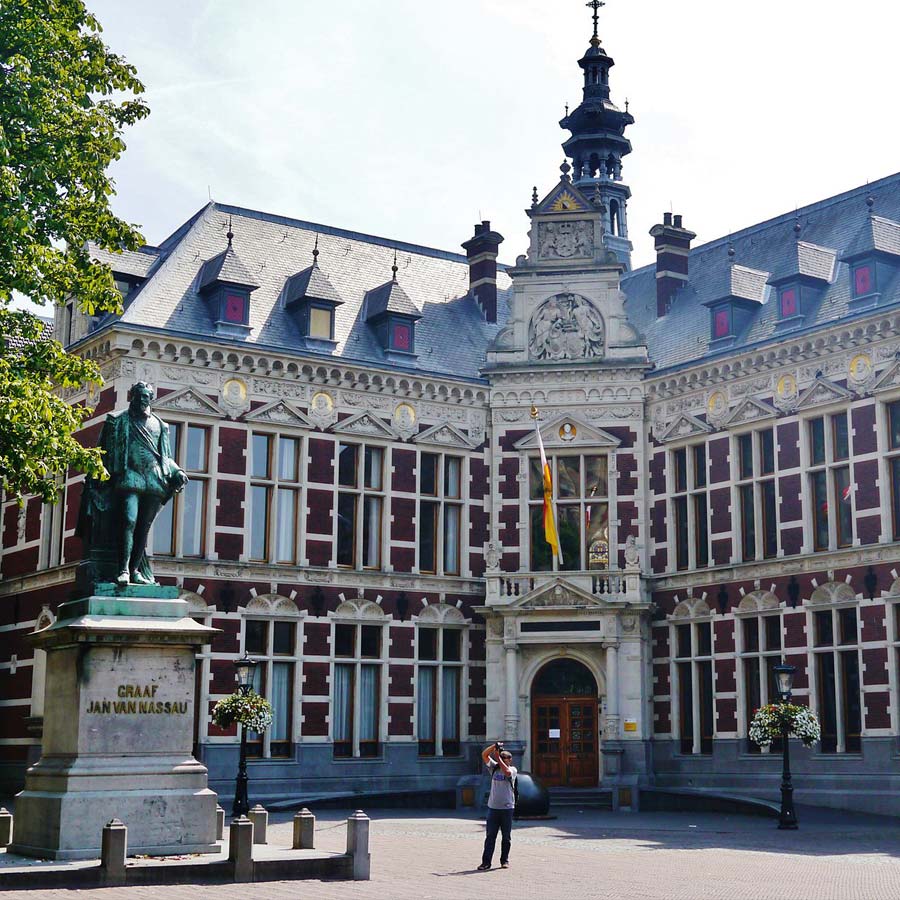
IN SITU partners have begun to map the field of CCIs – Creative and Cultural Industries across Europe’s non-urban areas with the aid of specialized knowledge from the Geography of Innovation Research Center at Utrecht University, in the Netherlands, and the MIK-Mondragon University team in northern Spain.
The Utrecht University team is experimenting with different datasets to quantify the socio-economic contributions and resilience of CCIs in non-urban regions situated across Europe, especially in the context of the Covid-19 pandemic. Taking into consideration an evolutionary perspective, they also aim to identify possibilities for consolidation and the emergence of new domains in CCIs in non-urban regions based upon related and unrelated diversification. Altogether, they will map potential pathways for future growth in non-urban regions.
This will be complemented by qualitative grounded inquiry in each of the IN SITU Labs locations to examine: (a) how the pandemic crisis influenced the business strategies and practices of non-urban CCIs, and (b) how the pandemic crisis may have more longer lasting impacts on their work.Meanwhile, the research team from the MIK-Mondragon University team is assessing how CCIs are driving innovation and generating socio-economic transformation in non-urban regions (see: https://www.youtube.com/watch?v=z7utFjSanIE ). They are pursuing qualitative approaches to access the innovative potential of non-urban CCIs and provide evidence of how CCIs based in non-urban regions of the Europe can act as drivers for innovation in other economic sectors and in non-economic sectors to contribute to societal well-being and sustainability. The research will also suggest the CCI subsectors that have more potential for further development in the specific contexts of the IN SITU Labs.
